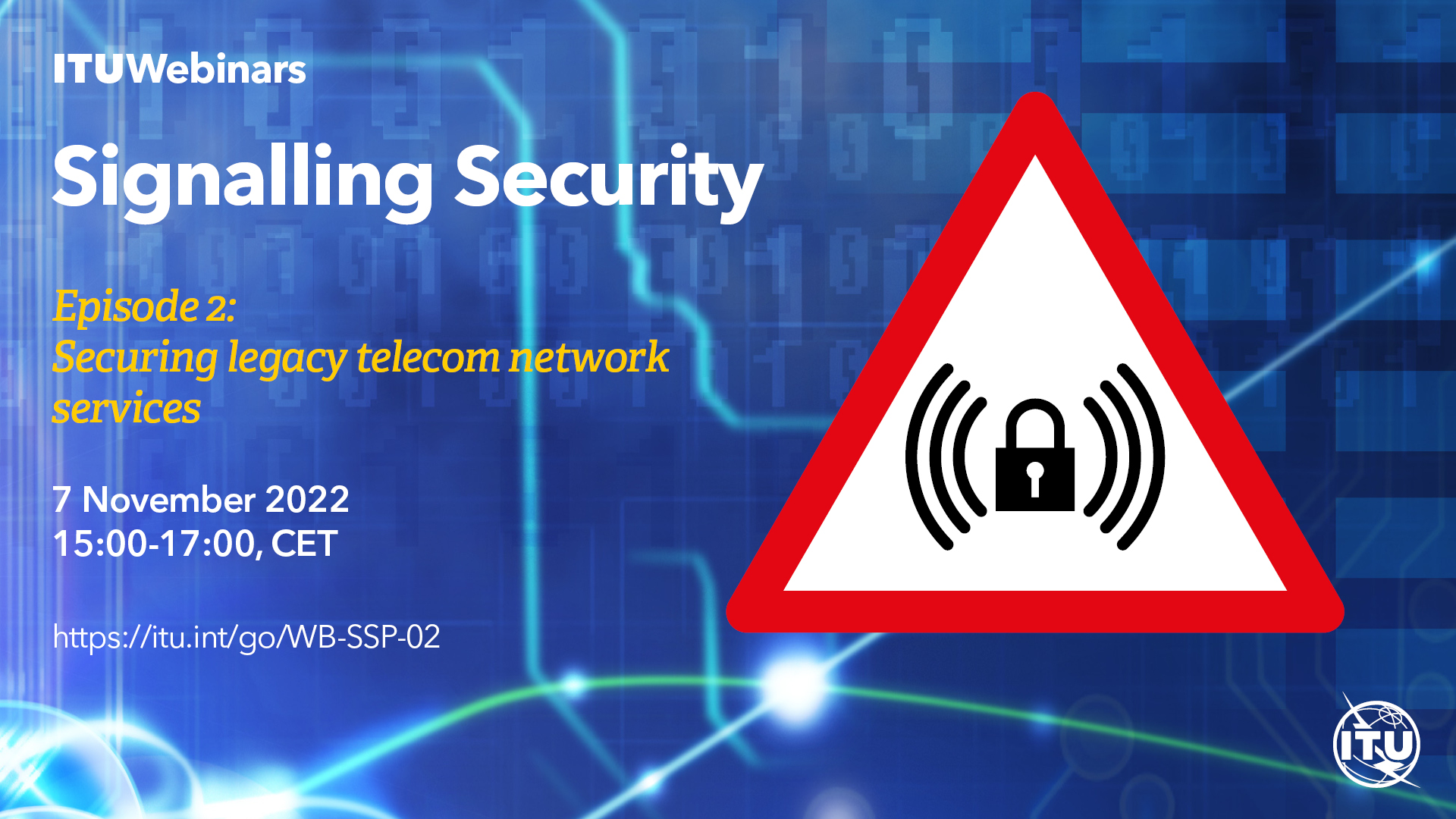
The
International Telecommunication Union (ITU) continued its organization of webinars on
"Signalling Security". This second episode on
“Securing legacy telecom network services”, took place fully virtually on 7 November 2022 (1500-1700 hours CET).
Legacy telecom networks pose a major security issue for their subscribers and cannot be shut-down due to the difficulties of deploying modern telecom networks, especially in rural areas and in developing countries. Telecom operators prefer to allocate their budget to providing advanced services which generate revenue, then to securing legacy networks, which are used by lower income subscribers.
The webinar provided a summary of legacy telecom networks security approaches which do not depend on the eployment of new and expensive equipment, but rather on implementing best practices which help to secure the legacy network services still in use, to cope with potential signalling attacks on telecom operators.
The event was part of a series of events on signalling security which have been organized by
ITU-T Study Group 11 since 2016.
More details about previous events are available
here.
Programme
The webinar programme will include the following:
- Overview of legacy telecom services and their main use cases.
- Current security issues in legacy telecom services (social engineering using caller-id spoofing, account take-over, SIM swap and SIM recycle).
- Best practice security mitigations for these attacks which do not require major infrastructure spend and their limitations.
- Use cases for applying best practices on improving legacy telecom services security.
Objectives
The Webinar was dedicated to providing an overview of existing legacy telecom services, indicate their key vulnerabilities and highlight best practices for mitigations to cope with such vulnerabilities. The implementations of relevant ITU-T Recommendations were also highlighted during the Webinar.
Target AudienceParticipation in the webinar was open to ITU Member States, Sector Members, Associates and Academic Institutions and to any individual from a country that is a member of ITU, who wished to contribute to the work. This included individuals who are also members of international, regional and national organizations, interested stakeholders, including telecom operators, regulators, SDOs and financial institutes. Participation in the webinar is free of charge and no fellowships will be granted. The webinar was held virtually and in English only.
Ressources